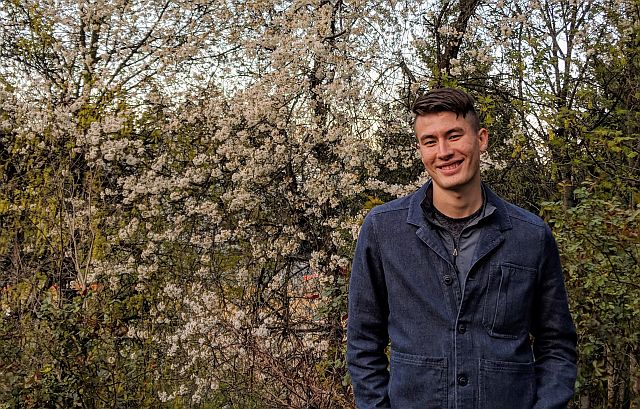
Since graduating from the University of North Alabama in 2016 with a bachelor’s degree in computer science, Tyler Yasaka has published several research papers. Now, he is a software engineer and a junior specialist at the University of California, Irvine (UCI) Department of Head and Neck Surgery. This week, Yasaka told UCI that he hoped a new app he helped develop would go “viral.”
According to UCI, TrackCOVID, developed by UCI researchers, is a free, open-source smartphone application that permits contact tracing while preserving privacy.
“Contact tracing is the process of tracking down and isolating people who may have been exposed to an infectious disease after someone has tested positive,” said lead author Yasaka. “This process has traditionally been slow and inefficient, and current technology-based solutions have privacy concerns because they require continuous tracking of everyone’s location.”
Yasaka also told UCI that every time a person gathers with others or goes to a public place, he or she can use the app to log contacts by either hosting or joining a checkpoint, which allows possible paths of virus transmission to be discovered. The first person to register as a checkpoint host is given a Quick Response (QR) code; others subsequently join the checkpoint by scanning this QR code.
Anyone who tests positive for COVID-19 can report it through the app without revealing his or her identity. Using the graph of interactions, the app will notify users who may be at elevated risk of exposure.
“We built a simplified simulation model that showed the app is more effective when more people use it,” said co-author Dr. Ronald Sahyouni, a biomedical engineer in UCI’s joint M.D./Ph.D. Medical Scientist Training Program and an incoming neurosurgery resident at UC San Diego.
Co-author Brandon Lehrich, who earned a B.S. in biomedical engineering at UCI in 2018, suggested that endorsement by local, state and national government entities would be beneficial – as would enlisting the help of grocery stores and other “essential” gathering places.
The establishments could post signs displaying their QR code, which visitors could scan with their smartphones. TrackCOVID would open automatically in their device browsers, and they’d be anonymously checked into that specific location.
“If the customer happens to be at an elevated risk level, they’ll see an alert on their screen,” Lehrich said. “If enough public places are doing this, then a lot of contact tracing will happen without any users making a conscious effort other than scanning a QR code when they go shopping. From there, I think people will start to see the value of the app and begin using it to create checkpoints for their private interactions as well.”
The team’s project is detailed in a paper published in the Journal of Medical Internet Research (JMIR), a leading peer-reviewed journal for digital medicine and health and health care. JMIR mHealth and uHealth feature mobile and tablet apps, as well as ubiquitous and pervasive computing, wearable computing, and domotics for health
The U.S. Army Corps of Engineers has been tasked with…
Brown and Caldwell, a leading environmental engineering and construction firm,…
Humboldt State University, one of four campuses within the California…